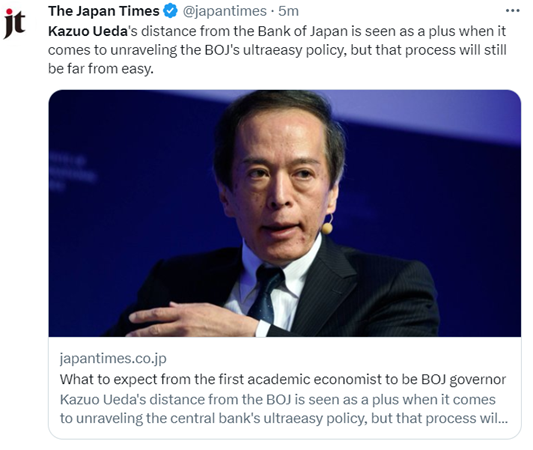Japan is going its own way. Despite high inflation, interest rates in the country are still at zero. That could change with the appointment of a new Bank of Japan president.
Kazuo Ueda will become the next governor of the Bank of Japan, replacing current governor Haruhiko Kuroda. Kuroda will step down in April after ten years in office. Following the announcement of the nomination, the Japanese yen strengthened 0.2% against the dollar to 132.13 on Tuesday.* The Bank of Japan (BOJ) has yet to change its yield curve control (YCC) targets. It left the short-term interest rate at an ultra-dovish level of minus 0.1% and the 10-year Japanese government bond (JGB) yield at around 0%. News about the election of a new governor is also spreading quickly on Twitter.

However, the forecasts are clear, namely that a gradual normalisation of policy is expected under the central bank's new leadership, rather than a sudden change. The Bank of Japan has little incentive to change its yield curve control policy, an economist argues.
The yen started to fall after the Bank of Japan decided to maintain its ultra-easy monetary policy, defying market expectations that rising inflation could force the central bank to abandon low interest rates. However, uncertainty surrounding policy in the country is increasing. Many believe Japan should move in a direction where it would support the economy with stimulus policies to ensure that companies are able to raise wages.
* Past performance is no guarantee of future results.


